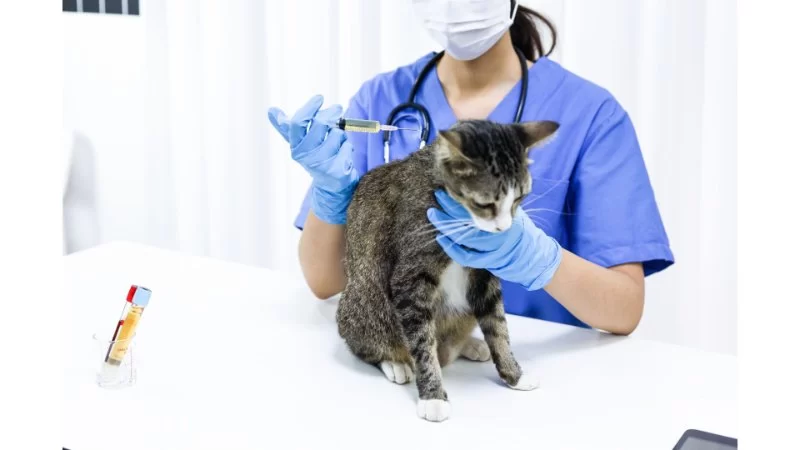How Hard is Veterinary School? A Comprehensive Guide to the Challenges and Rewards
- 1. Challenges of Veterinary School
- 2. Academic Difficulties in Veterinary School
- 3. Practical Experiences in Veterinary School
- 4. Emotional and Physical Demands of Veterinary School
- 5. Success Stories and Real-Life Experiences
- 6. Tips for Surviving Veterinary School
1. Challenges of Veterinary School
Becoming a veterinarian is a dream for many animal lovers, but it’s not a journey for the faint of heart. The question, "How hard is veterinary school?" is often asked by prospective students, and the answer is not simple. Veterinary school is one of the most rigorous and competitive programs out there, demanding a high level of dedication, skill, and resilience. The sheer volume of material, the intensity of the program, and the emotional toll it can take make it a challenging path to walk.
Veterinary students are expected to master a broad range of subjects, from biology and anatomy to pharmacology and surgery. In addition, they must apply their knowledge in real-world clinical settings, which requires hands-on experience and a great deal of responsibility. While the rewards of becoming a veterinarian are immense, the road to getting there can be difficult and demanding.
2. Academic Difficulties in Veterinary School
One of the most challenging aspects of veterinary school is the academic workload. Unlike other fields, veterinary students must learn not only about one species, but about a variety of animals, each with their own unique anatomy, diseases, and treatments. The curriculum is extremely detailed, and students must absorb large amounts of information in a short period of time.
For example, students may be required to learn the physiology and pathology of animals ranging from cats and dogs to horses and exotic species, each with unique characteristics. Veterinary students also must study veterinary medicine, surgery, pathology, and clinical techniques that involve both knowledge and practical skill. The intensity of the academic curriculum can be overwhelming for some students, especially during exam periods.
3. Practical Experiences in Veterinary School
In addition to academic challenges, veterinary school also includes a significant amount of hands-on learning. Students are often required to participate in clinical rotations, where they observe and assist in surgeries, diagnostics, and treatments. This hands-on experience is crucial to becoming a successful veterinarian, but it can also be stressful and emotionally challenging.
For many students, interacting with sick or injured animals, delivering bad news to pet owners, and performing life-or-death procedures are emotional experiences. These situations test not only academic knowledge but also empathy, compassion, and the ability to handle pressure. It's a unique part of veterinary school that makes the training particularly challenging but ultimately rewarding.
4. Emotional and Physical Demands of Veterinary School
Veterinary school isn't just intellectually demanding; it’s also emotionally and physically taxing. The long hours of studying, working in clinical settings, and dealing with the pressures of veterinary education can lead to burnout and stress. Veterinary students often experience high levels of anxiety, depression, and exhaustion due to the demands placed on them.
Additionally, the physical toll of working long hours in a veterinary clinic, performing surgeries, and attending to animals in need can be taxing on students’ bodies. Lack of sleep, physical strain, and the emotional rollercoaster of handling life-and-death situations can make it difficult to maintain a healthy work-life balance during veterinary school.
5. Success Stories and Real-Life Experiences
Despite the challenges, many veterinarians share inspiring success stories of how they overcame the difficulties of veterinary school. Take the story of Sarah, a recent veterinary school graduate. “The first year was the toughest for me,” she says. “I felt overwhelmed by the amount of material we had to learn. But as time went on, I found my rhythm. The hands-on clinical work was incredibly rewarding, and I knew it was worth the struggle. Now, I’m working as a small animal vet, and I couldn’t be happier.”
Another veterinarian, Mark, shared his experience: “Veterinary school pushed me to my limits, both physically and mentally. But the bond I have with animals, and the ability to help them, made it all worth it. The hardest part was managing my stress levels and maintaining a social life. It’s tough, but it’s also one of the most rewarding careers.”
6. Tips for Surviving Veterinary School
If you're thinking about applying to veterinary school, here are a few tips to help you succeed:
- Stay organized: With so much to learn, staying organized is key. Use a planner or digital tools to keep track of assignments, deadlines, and exams.
- Develop a support network: Surround yourself with classmates, family, and friends who can offer support and encouragement when things get tough.
- Prioritize self-care: It's easy to neglect your health while studying and working long hours, but taking care of yourself is crucial. Make time for exercise, relaxation, and social activities.
- Stay passionate: Remember why you wanted to become a veterinarian in the first place. Keeping your passion for animals at the forefront will help you stay motivated during difficult times.
Veterinary school is undeniably challenging, but for those who are dedicated, it can lead to a fulfilling and rewarding career. If you’re committed to the path, the sacrifices and hard work will pay off when you’re able to make a positive impact on the lives of animals and their owners.
Ready to begin your veterinary journey? Whether you're in need of veterinary supplies, books, or professional guidance, consider visiting Hidden Brook Veterinary to find everything you need to kickstart your career in veterinary medicine. Don't wait—start your journey today!












